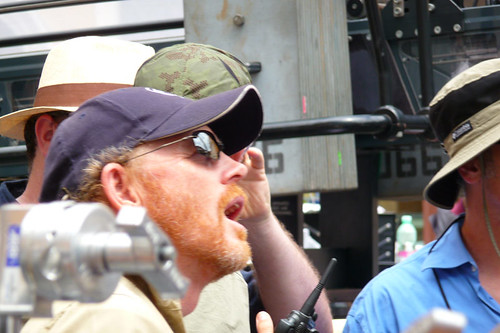The Ron Howard movie accused of “blasphemy”
Ron Howard #RonHoward


(Credits: Far Out / YouTube Still)
Sat 20 January 2024 15:15, UK
As either an actor, director, or producer, Ron Howard hasn’t exactly been known as a person to become embroiled in any sort of controversy whatsoever, an admittedly impressive feat considering he’s been working in the entertainment industry since making his screen debut at the age of two.
Regarded as possessing a pair of the safest hands in the business, Howard’s small screen stardom in The Andy Griffith Show and Happy Days eventually segued into his secondary – and eminently more successful – career as a filmmaker. Proving himself to be one of the most versatile around, there aren’t many genres he hasn’t dipped his toes into at least once.
Whether it’s acclaimed dramas, propulsive thrillers, effects-heavy blockbusters, or biographical stories, backlash and vociferous opposition have never been an issue. He’s made great movies, painfully average ones, and even an outright stinker or two, but only one of his credits has ever been deemed blasphemous.
Dan Brown’s The Da Vinci Code became a literary phenomenon when it was first published in 2003, making a live-action adaptation an inevitability. Sure enough, Howard was drafted in for the big-budget mystery with Tom Hanks as Robert Langdon, only for the doors to immediately open to blowback.
The plot finds a murder in the Louvre, igniting a millennia-spanning conspiracy that has the potential to shake the foundations of Christianity to its core, something keepers of the faith were not thrilled about. Protestors turned out in various countries around the world when The Da Vinci Code was released, citing the film’s entire existence as an act of blasphemy.
Hundreds of people showed up at screenings in the United States and Greece to decry Howard’s film, which was banned in the Philippines and withheld from screening in India for two months. The Vatican even issued an official statement, calling for a boycott and blasting The Da Vinci Code for being “full of calumnies, offences, and historical and theological errors”.
The Opus Dei group featured in both the book and its adaptation requested studio Sony make edits to remove references to their organisation that would be “hurtful to Catholics”, even asking the company to add a disclaimer as a “sign of respect towards the figure of Jesus Christ, the history of the Church, and the religious beliefs of viewers”, with the Archbishop of Lima urging his congregation to avoid “giving money to those who hurt the faith”.
For his part, Howard told the Los Angeles Times that there was never any considerations about adding a disclaimer when The Da Vinci Code “is a work of fiction that presents a set of characters that are affected by these conspiracies and ideas”, making the point of how “spy thrillers don’t start off with disclaimers”.
The movie wasn’t very good in the end, but the controversy did lend a significant assist in generating additional buzz after The Da Vinci Code exploded out of the blocks to end its theatrical run with a mind-blowing $760million in the coffers and a status of the highest-grossing release of Howard’s entire career by quite some distance.
Related Topics